After shutting down its plant for upgrades, EV maker Rivian (RIVN) is warning that Q2 could be “messy.” Rivian’s CEO, RJ Scaringe, warned that Q2 will be messy at a fireside chat Thursday. Scaringe also discussed Tesla NACS adaptors and Rivian’s upcoming R2 and R3 vehicles.
Rivian has already accomplished a lot since its first vehicle, the R1T, rolled off the production line in 2021.
After Rivian’s vehicle sales doubled last year (YOY), topping 50,000, the EV maker is ready to enter its next growth stage. However, like the past few years, the road to get there likely won’t be smooth.
The luxury EV maker is already making a name for itself as the fourth best-selling electric car maker in the US. Rivian’s R1S electric SUV is the best-selling large SUV, electric or gas, in California.
According to Kelley Blue Book data, it was also the fourth best-selling EV in the US during the first three months of 2024. The R1S was only behind Tesla’s Model Y, Model 3, and the Ford Mustang Mach-E.

Despite the success, Rivian expects a slowdown in the second quarter. Rivian shut down production at its Normal, IL facility last month to “implement a whole host of changes,” according to Scaringe.
The upgrades “introduced a dramatic cost reduction in material costs,” Rivian’s CEO and Founder explained. Due to the shutdown, Scaringe warned that Q2 “is going to be messy.”
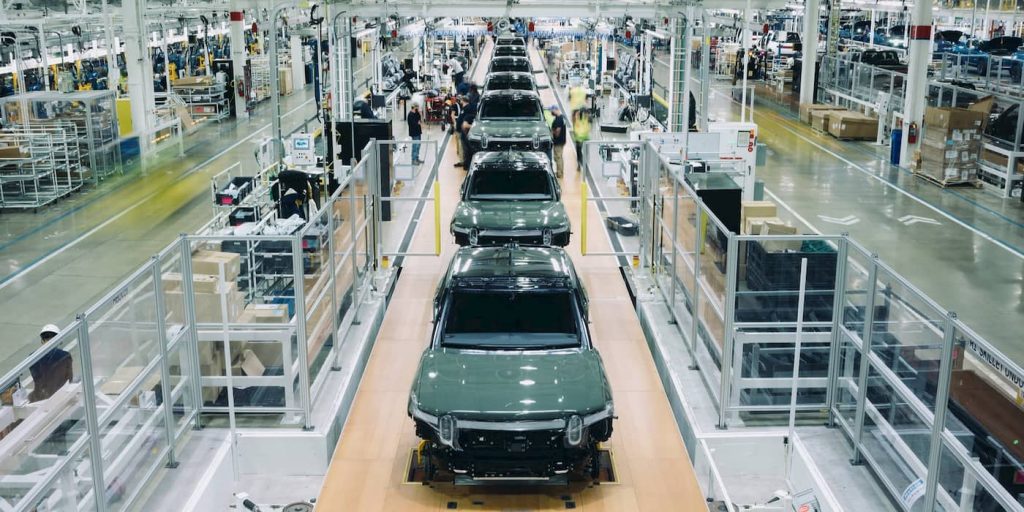
Rivian braces for a messy Q2 earnings
At Bernstein’s 40th annual Strategic Decisions Conference Thursday, Scaringe said 2024 is a big year for Rivian with new R1 updates and cost improvements.
Despite being on a trajectory toward healthy positive gross margins in 2025, Rivian is still in the red to date.
| Q3 ’22 | Q4 ’22 | Q1 ’23 | Q2 ’23 | Q3 ’23 | Q4 ’23 | Q1 ’24 | |
| Rivian loss per vehicle | $139,277 | $124,162 | $67,329 | $32,594 | $30,500 | $43,372 | $38,784 |
Rivian’s gross vehicle margins narrowed slightly to a $38,784 loss per vehicle in Q1 from a $43,472 loss per vehicle in Q4. However, gross margins are still higher than the $32K and $30K loss in Q2 and Q3 2023, respectively.
Although new supplier negotiations and production upgrades are expected to drastically lower Rivian’s bill of materials into 2025, the shutdown will significantly impact Q2 earnings.
Scaringe warned, “From an investor perspective, the second quarter’s going to be messy” due to the month-long shutdown.
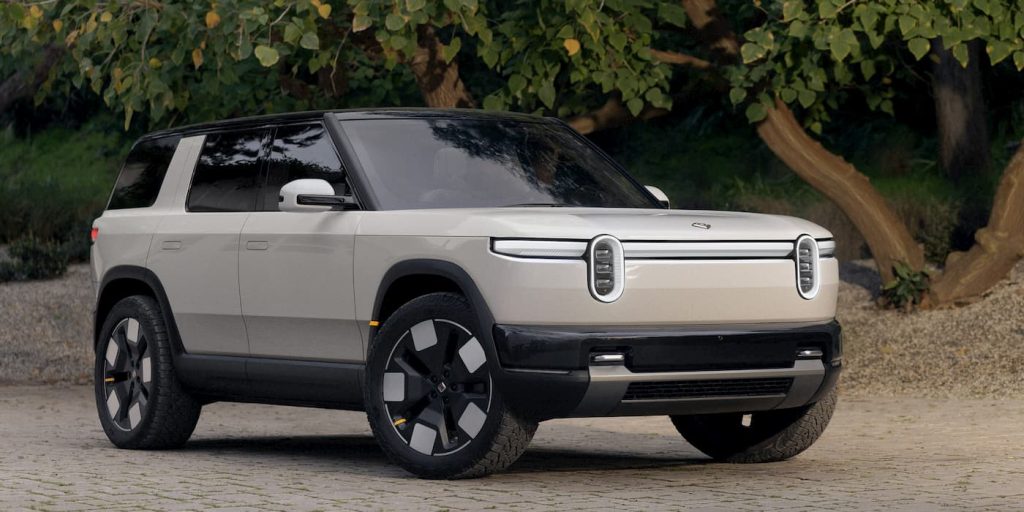
“We will deliver a very small percentage of these newer vehicles [in terms of cost] in Q2,” Scaringe explained. “You won’t see a lot of those benefits until you get to Q3.”
Meanwhile, Scaringe added that the upgrades are “contractual.” Rivian isn’t “hoping or wishing costs were lower,” these have been negotiated with suppliers over the last 24 months.
Rivian added 100s of new robots for automation and increased the line rate by 30%. It also went from “41 components in the battery pack down to 16.”
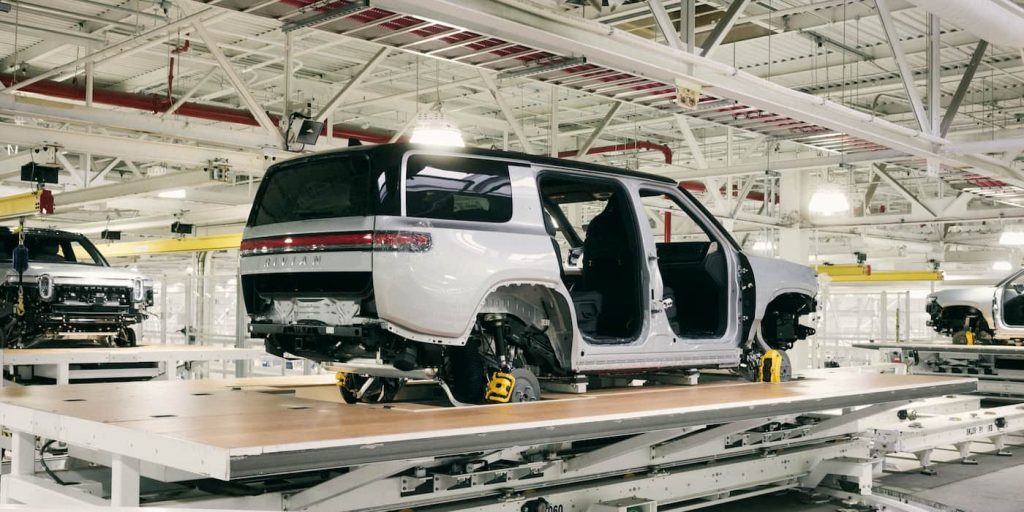
Scaringe said these improvements alone will create more efficiency and fewer hours per unit. In other words, the cost of goods sold is also being reduced.
Tesla NACS adoption and upcoming R2/R3
Rivian revealed its next-gen R2, a smaller and more affordable EV, in March. Scaringe also shocked the industry by introducing an even smaller and lower-cost R3 model.
Scaringe said the new models will greatly expand Rivian’s addressable market. The R2 will start in the “mid-$40,000s” compared to Rivian’s current $90,000 ASP.
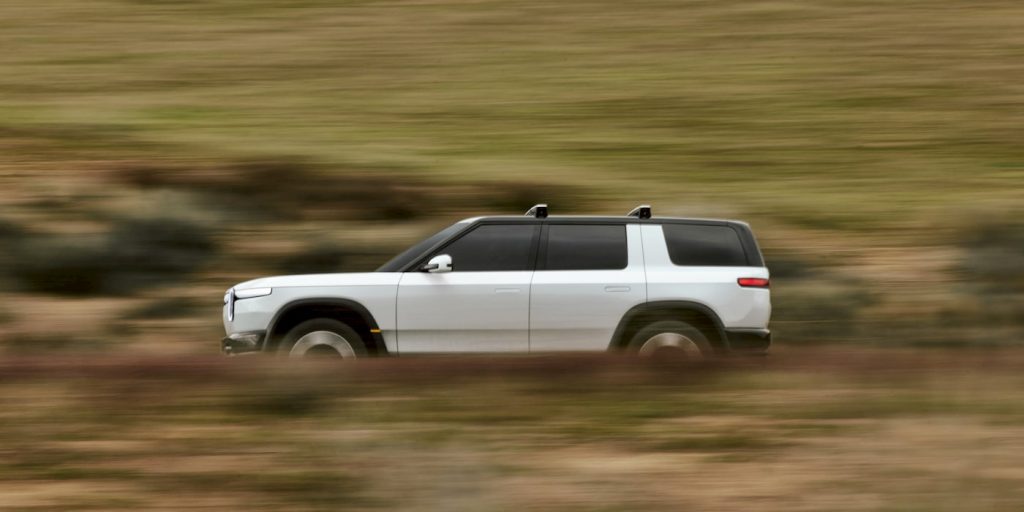
The R2 still “embodies the essence of Rivian,” Scaringe said, but Rivian had to make “trade-offs” to keep prices low. Some trade-offs could include features, content, and performance, but Scaringe doesn’t expect to impact customers too negatively.
For example, the R2’s suspension uses a strut, which is a lower-cost feature than what you find on the R1. The doors are also simpler, with a single piece of glass.
Scaringe said, “Every part must earn its way on the vehicle,” as it cuts costs. Rivian’s CEO explained that the R2 is not out to compete with Tesla’s best-selling Model Y; it is “competing with the 92% of customers who haven’t decided to go electric.”
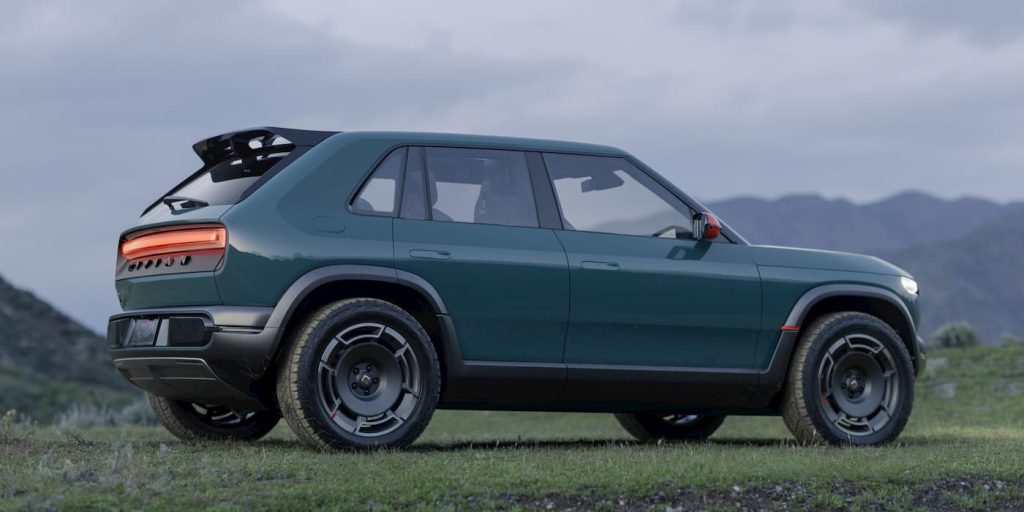
Rivian is expected to begin R2 production at its Normal, IL facility in the first half of 2026. Scaringe said the R2 scored over 68,000 reservations in less than 24 hours.
After Rivian began shipping R1 owners Tesla NACS adaptors last month, Scaringe said there was a shortage, but “those are shipping now.”
Scaringe added, “Over time, we will be switching to the NACS connector, along with moving our charging network over to that.” Rivian expects to incorporate NACS charge ports in R1T and R1S vehicles as standard in 2025.
Rivian owners can now access over 15,000 Tesla Superchargers, in addition to the 16,000 existing fast chargers they already have access to.
FTC: We use income earning auto affiliate links. More.




